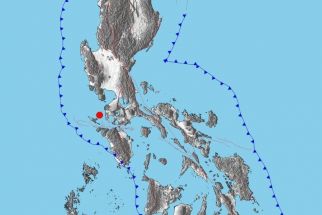Guingona seeks creation of stockpile of petroleum for emergency use
MANILA, Philippines - With the price of oil constantly fluctuating and no assurance of stable supply in sight, Sen. Teofisto Guingona III has proposed the creation of a stockpile of refined petroleum products which could be used in times of emergency.
Guingona, in his Senate Bill 159, called for the creation of a Philippine Strategic Petroleum Reserve to be handled primarily by the Philippine National Oil Co.
The PNOC would be mandated to “provide, operate and administer or form a joint venture with other parties to put up a stockpile facility for refined petroleum products such as gasoline, diesel and liquefied petroleum gas (LPG).”
Guingona recalled the LPG shortage that took place in February last year which led to delays in the delivery of the product to the households and the increase in prices of the dealers.
It was unclear if the supply shortage was artificial or if there was some valid reason for the sudden reduction of LPG in the market.
The big LPG players blamed the LPG refillers as the culprit for causing shortage, pointing out that these refillers chose to hoard since importers and refiners were refusing to supply them with bulk LPG.
“The LPG shortage last January to February 2009 gives us valid reason to pause and come up with a strategy to ensure that the people’s supply of petroleum products is secure and one of the obvious solutions is to establish a reserve to be used primarily in times of emergency,” Guingona said.
Guingona noted that the proposal is not new because the Department of Energy had already raised the idea several years back.
He said that the DOE even tapped its counterpart in the United States to conduct a feasibility study for the proposed oil stockpile program.
According to Guingona, the same strategy has been used in the US and Japan but instead of refined petroleum products, they stockpiled on crude oil.
Guingona argued that stockpiling of refined petroleum products would be the better strategy in the local context because these could be ready for distribution and use when needed.
Under the bill, the PNOC would be tasked to take into account program management and organization, storage method and location, cost of storage facility, price setting of petroleum products originating from the reserve based on current market standards and other issues.
In the event of an emergency, the Secretary of Energy would be the one to authorize full drawdown from the stockpile.
Guingona noted that there must be a significant reduction in supply and a severe increase in the price of petroleum products in order to be considered as an emergency situation because this would have an adverse impact on the national economy.
He also proposed for a trade drawdown which may be determined by the President such as sale or exchange of petroleum products with other Association of Southeast Asian Nations member countries as provided for in the ASEAN Petroleum Security Agreement (APSA) or with other parties for higher quality petroleum products, in exchange of storage capacity, or to resolve petroleum delivery problems of oil companies.
“It is about time that we establish a reserve to be used primarily in times of emergency and to use as well to augment existing supplies in the anticipation and prevention of a shortage,” Guingona said.
“It is of great importance that the government must have a direct hand in protecting the country’s supply security, especially over these essential commodities, and therefore, a new balance between the market system and state control must be put in place in order to stabilize not only the price of petroleum products but, more importantly, their supply,” he added.
- Latest
- Trending






























